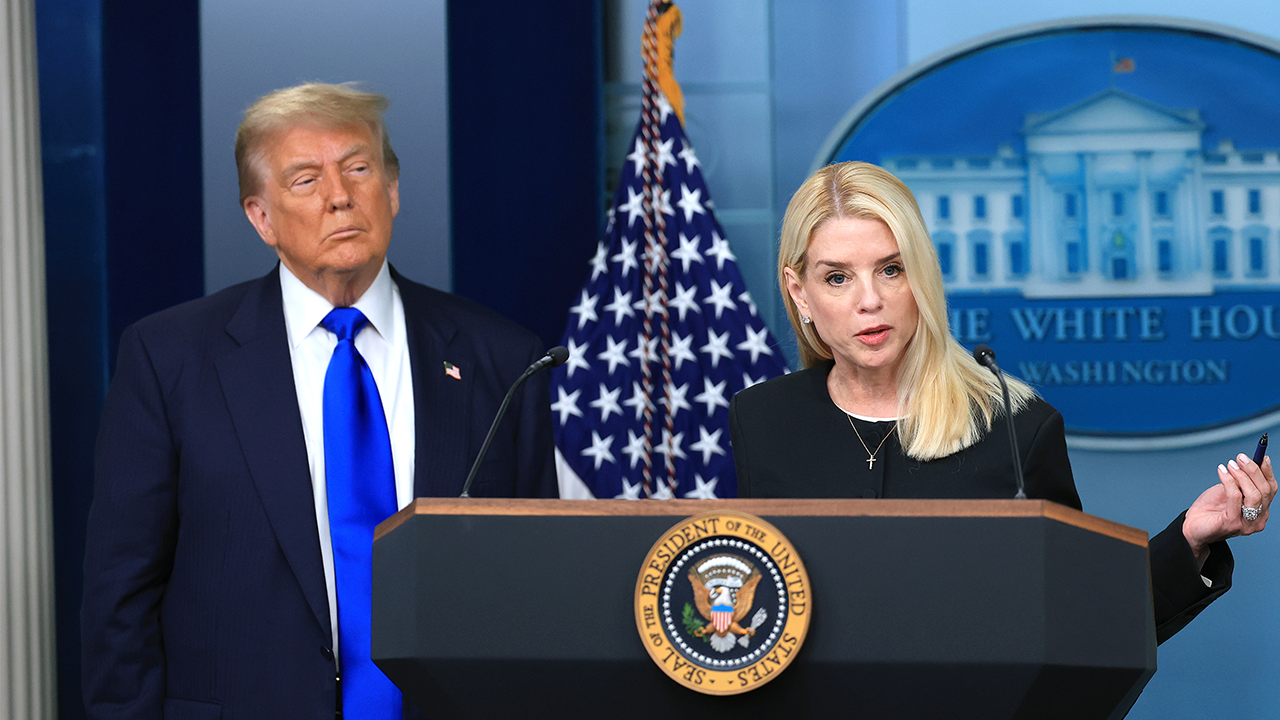Crypto
Global Cryptocurrency Regulations: Impact on Industry and Investor Behavior in 2024

The world of cryptocurrency has seen remarkable growth and evolution since its inception, transitioning from obscure digital assets to a global financial phenomenon. As we step into 2024, the global cryptocurrency landscape is undergoing significant changes, with governments and regulatory bodies around the world working to establish clear frameworks for the use of digital assets. The regulatory initiatives being discussed in various regions are poised to redefine the industry and significantly influence investor behavior, stepping into 2024.
The U.S. Congressional Debates
In the United States, the cryptocurrency industry has long been characterized by a lack of clear and comprehensive regulation. This regulatory ambiguity has both hindered innovation and raised concerns about investor protection.
– Advertisement –
This year, the U.S. Congress has been actively debating on several bills that aim to address these challenges. These legislative efforts reflect the recognition that cryptocurrencies are no longer on the fringes of the financial world but have become a mainstream asset class. The ultimate outcome of these debates will have a profound impact on industry participants and how investors approach the crypto market.
The Markets in Crypto-assets (MiCA) Law in the EU
Across the Atlantic, the European Union has taken a bold step forward in regulating digital assets. The Markets in Crypto-assets (MiCA) law, which was developed in early 2023, is an ambitious attempt to bring much-needed clarity and structure to the rapidly expanding cryptocurrency ecosystem in the EU.
MiCA addresses various aspects of the crypto space, including unbacked crypto-assets, stablecoins, and trading venues, and digital wallets that facilitate the storage and transfer of crypto-assets. What sets MiCA apart is its comprehensive approach, covering all types of crypto-assets, which will be classified as either financial instruments or electronic money. This legal framework will also introduce specific requirements for crypto-asset issuers, custodians, and trading platforms, aimed at ensuring investor protection and market integrity.
MiCA is expected to become effective in 2024, and its influence is likely to extend far beyond the EU’s borders. In many ways, the MiCA law is anticipated to serve as a model for other jurisdictions worldwide, setting a standard for the regulation of digital assets that governments and regulators can adapt to their specific needs.
India
After implementing taxation rules and regulations in 2022, India in March 2023 included cryptocurrencies under the purview of the Anti Money Laundering Act. To comply with the new regulations, these businesses will be required to register with the Financial Intelligence Unit (FIU) and adhere to other mandatory processes outlined in the Prevention of Money Laundering Act (PMLA). These progressive regulatory measures are expected to instill confidence, attract further investment, and drive innovation in the evolving landscape of cryptocurrencies.
The United Kingdom
The United Kingdom has taken progressive steps in establishing regulatory clarity for cryptocurrencies. A bill that brings cryptocurrencies under the same regulatory framework as traditional assets has been passed into law in June this year as the Financial Services and Markets Act 2023. This law recognizes crypto trading as a regulated financial activity, signifying a significant advancement for the broader crypto industry.
The formal recognition of cryptocurrencies in the UK provides a solid foundation for the industry to thrive. The new law grants regulatory power to key entities such as the Treasury, Financial Conduct Authority (FCA), Bank of England, and Payments Systems Regulator. These authorities will now have the ability to introduce and enforce regulations specifically tailored to crypto businesses.
By introducing comprehensive regulations and granting regulatory powers to key entities, the UK government is signaling its support for the crypto sector’s long-term development.
Impact on the Cryptocurrency Industry
The impending regulatory changes in various countries will undeniably have a transformative effect on the cryptocurrency industry in 2024. Here are some key areas where the impact is likely to be felt:
Market Maturity: Regulatory clarity will contribute to the maturation of the cryptocurrency market. As institutional investors, including hedge funds and asset managers, have been cautiously eyeing the crypto space, the prospect of robust regulations can provide them with the confidence they need to enter the market. This influx of institutional capital can lead to greater market stability and liquidity.
Compliance Costs: The need for compliance with a more stringent regulatory environment will necessitate significant changes in business operations for crypto companies. This includes enhanced due diligence for customer onboarding, reporting requirements, and potentially even licensing fees. Smaller players may find it challenging to adapt to these new compliance standards, leading to industry consolidation.
Innovation and Competition: Regulatory certainty can stimulate innovation in the cryptocurrency sector. Firms will have a clearer understanding of the rules of the game, enabling them to develop new products and services with confidence. The increased competition among regulated entities could drive advancements and improvements in the industry.
Market Integrity: Investors will benefit from increased transparency and security measures, which are integral components of the regulatory framework. Regulatory oversight can help to weed out fraudulent schemes and enhance market integrity, making it safer for retail investors.
– Advertisement –
Market Entry and Exit: Clear regulations can encourage new players to enter the market, but it may also cause some existing participants to exit if they cannot meet the compliance standards. This changing landscape will require adaptation from industry stakeholders.
Impact on Investor Behavior
The evolving regulatory landscape will not only shape the industry but will also significantly influence investor behavior in 2024:
Greater Trust and Confidence: With the establishment of robust regulatory frameworks, investors are likely to have greater trust and confidence in the cryptocurrency market. This newfound faith in the asset class can lead to increased investment and participation.
Risk Assessment: Regulatory clarity will enable investors to better assess the risks associated with various cryptocurrency investments. Understanding the legal and operational parameters of crypto assets can empower investors to make more informed decisions.
Institutional Participation: The influx of institutional capital into the cryptocurrency market is expected to increase as regulations provide a level of assurance that institutional investors typically require. This can lead to larger investments and a more stable market.
Retail Protection: Regulatory safeguards can offer retail investors protection against fraudulent activities and market manipulations. This, in turn, can attract more retail participants to the cryptocurrency space.
Diversification and Portfolio Allocation: As the cryptocurrency market matures, investors may consider adding digital assets to their investment portfolios. The diversification benefits of cryptocurrencies, when combined with regulatory oversight, can make them an appealing option for a broader range of investors.
Conclusion
The year 2024 is poised to be a pivotal one for the cryptocurrency industry. The frameworks expected will not only shape the industry but will also significantly impact investor behavior. While regulatory compliance may present challenges and compliance costs for industry participants, it can also drive innovation and competition, ultimately benefiting the ecosystem.
As we approach this transformative year, it is imperative for investors, businesses, and stakeholders in the cryptocurrency space to closely monitor regulatory developments and adapt to the evolving landscape. The cryptocurrency industry, once seen as the Wild West of finance, is taking significant steps toward becoming a more mature and regulated asset class, and the impact of these changes will be felt for years to come.

Crypto
President Donald Trump will sign a new cryptocurrency bill into law on Friday
WASHINGTON (AP) — President Donald Trump on Friday will sign into law a new set of regulations for a type of cryptocurrency that are seen as a way to legitimize the burgeoning industry.
The GENIUS Act sets initial guardrails and consumer protections for stablecoins, a type of cryptocurrency that is tied to a stable asset like the U.S. dollar to reduce price volatility. It passed both the House and Senate with wide bipartisan margins.
The measure is meant to bolster consumer confidence in the rapidly growing crypto sector. Its passage comes as Trump makes it a mission to make the U.S. the “crypto capital of the world.”
“Congratulations to our GREAT REPUBLICANS for being able to accomplish so much, a record, in so short a period of time,” Trump wrote on his social media site Friday morning as he announced the bill signing.
The House also passed two other bills Thursday that are meant to boost the legitimacy of the crypto industry. One creates a new market structure for cryptocurrency, and the other bans the Federal Reserve from issuing a new digital currency. Both measures now go to the Senate.
Crypto
What’s a stablecoin? House passes landmark bills to regulate the cryptocurrency

The Republican-controlled House on Thursday passed landmark legislation to regulate stablecoin in a big win for the cryptocurrency industry.
Bitcoin at all-time high as lawmakers focus on pro-crypto legislation
President Donald Trump, once a crypto skeptic, has become a major promoter of the industry.
Scripps News
- The GENIUS Act creates a regulatory framework for stablecoins, a type of cryptocurrency tied to the value of an asset like the U.S. dollar.
- Advocates say the bill will protect consumers.
- Democrats have raised concerns about President Trump’s financial ties to the crypto indusry.
- Trump last year launched World Liberty Financial, which issued a U.S. dollar-backed stablecoin, and raised raised $550 million selling a different crypto coin known as $WLFI.
- Trump also held a dinner in May for the top purchasers of the $TRUMP meme coin, owned by an affiliate of The Trump Organization.
WASHINGTON – The Republican-controlled House passed a trio of bills on July 17 that amount to a big win for a cryptocurrency industry that has helped make President Donald Trump tens of millions of dollars.
A piece of the landmark legislation package, dubbed the GENIUS Act, creates a regulatory framework for stablecoins, a type of cryptocurrency tied to the value of an asset like the U.S. dollar.
Advocates say the primary bill will help protect consumers and set industry standards that could allow stablecoins to become mainstream for digital payments and other financial instruments.
The main bill, approved by the Senate in June, passed the House by a vote of 308-122, with all Republicans and several Democrats voting in favor. It is now headed to Trump’s desk to be signed into law.
“This is a historic opportunity for the United States. After years of work, American innovators are one step closer to having the clarity they need to build here at home while ensuring the future of the digital economy reflects our values of privacy, individual sovereignty, and free-market competitiveness,” Republican Majority Whip Rep. Tom Emmer of Minnesota said in a statement.
However, House leadership had hit unexpected hurdles midweek while trying to advance the three crypto bills, with the first procedural votes on July 16 breaking a record for the chamber by lasting about nine hours.
One measure barring the Federal Reserve from creating a central bank for cryptocurrency was a particular sticking point, with Republicans debating how to best set the bill up to succeed in a future Senate vote. It passed the lower chamber on July 17 entirely with GOP support in a 219-210 vote that fell along party lines.
The Clarity Act, which defines when a cryptocurrency is a security or a commodity and clarifies the Securities and Exchange Commission’s jurisdiction over the entire financial sector, also passed the House on July 17 and must head to the Senate.
Senate Democrats have voiced concerns about Trump’s connections to the cryptocurrency industry.
“The GENIUS Act will accelerate Trump’s corruption by supercharging the size of the stablecoin market and the reach and profitability of USD1,” said Sen. Elizabeth Warren, D-Massachusetts, on the Senate floor in May.
One of the biggest money-making ventures for Trump was World Liberty Financial, a cryptocurrency platform launched last year. It brought in $57.3 million and it launched USD1, a U.S. dollar-backed stablecoin.
Trump also held a dinner in May for the top purchasers of the $TRUMP meme coin, owned by an affiliate of The Trump Organization.
However, supporters of the bill maintained that it could help safeguard investors and help Americans have greater access to the financial system.
“The golden age of digital assets is here, and the U.S. will lead,” said Wisconsin Rep. Bryan Steil in a statement.
Contributing: Riley Beggin, Medora Lee and Swapna Venugopal Ramaswamy, USA TODAY
Crypto
Russian National Charged With Laundering $530 Million Through Cryptocurrency Companies

Iurii Gugnin, a 38-year-old Russian national residing in New York, has been charged with 22 criminal counts by the US Department of Justice (DOJ) for allegedly laundering over $530 million through his cryptocurrency companies, Evita Investments and Evita Pay. The charges include wire fraud, bank fraud, money laundering, and violations of the International Emergency Economic Powers Act (IEEPA).
Gugnin is accused of creating a financial pipeline using the stablecoin Tether USDt (USDT) to support sanctioned Russian entities and bypass US sanctions and export controls. He allegedly deceived banks, falsified compliance documents, and facilitated access to sensitive US technologies. Gugnin’s actions highlight the misuse of digital assets for illicit finance and the growing challenges of regulating cryptocurrency markets.
Gugnin presented Evita as a legitimate cryptocurrency payment service but allegedly used it to secretly transfer illegal funds for Russian clients. By posing as a compliant financial technology company, Evita moved money through US banks and crypto exchanges while hiding the funds’ real sources. As president, treasurer, and compliance officer, Gugnin had complete control over these companies’ operations, finances, and regulatory reporting, enabling him to manage transactions, misrepresent the companies’ activities, and ignore Anti-Money Laundering (AML) rules. Authorities claim Evita’s systems were used to help sanctioned Russian entities obtain US technology and channel funds through stablecoins like USDT.
Gugnin is accused of moving $530 million through the US financial system while concealing the illicit origins of the funds. He laundered about $530 million through US banks and cryptocurrency exchanges, primarily using USDT, a stablecoin tied to the US dollar and known for its fast, low-volatility cross-border transactions. The operation involved receiving cryptocurrency from foreign clients, many connected to sanctioned Russian banks, including Sberbank, VTB, Sovcombank, and Tinkoff. These digital funds were channeled through cryptocurrency wallets controlled by Evita and then converted into US dollars or other traditional currencies via US bank accounts. This helped Gugnin to obscure their origins and assist Russian clients in evading international sanctions.
Gugnin used deceptive methods to hide the illegal nature of these cross-border transactions. He altered invoices digitally to remove the names and addresses of Russian clients and provided false compliance documents to banks and cryptocurrency exchanges. These documents wrongly claimed that Evita had no ties to sanctioned entities and had complied with AML and Know Your Customer (KYC) regulations. Despite claiming compliance, Evita allegedly operated without an actual AML compliance and failed to file Suspicious Activity Reports (SARs) as required by US regulations. This allowed Gugnin to mask the source and purpose of the funds, enabling high-risk transactions that may have supported Russia’s access to restricted US technology.
Gugnin, through his cryptocurrency companies, allegedly created a financial network to support Russian entities banned by US sanctions. Prosecutors allege he handled more than $500 million in transactions for Russian clients connected to sanctioned banks, including PJSC Sberbank, PJSC Sovcombank, PJSC VTB Bank, and JSC Tinkoff Bank. While living in the US, Gugnin held personal accounts with sanctioned banks JSC Alfa-Bank and PJSC Sberbank. He also enabled payments to acquire US export-controlled technology, such as sensitive servers, and laundered money to obtain components for Rosatom, Russia’s state nuclear agency. Actions of Gugnin and Evita provided Russian clients access to restricted components. Gugnin hid his activities by altering invoices to conceal Russian ties and falsifying compliance documents.
Gugnin and his companies are accused of deliberately violating US sanctions and export controls and the International Emergency Economic Powers Act (IEEPA). He allegedly deceived US banks and cryptocurrency exchanges by falsely stating that Evita had no connections with sanctioned Russian entities, while actively processing transactions for clients linked to blacklisted banks. To hide his activities, Gugnin secured a Florida money transmitter license by providing false details about Evita’s operations. This allowed him to use crypto exchange services under the pretense of compliance. Gugnin transferred over $500 million, often in USDT, into the US financial system through this scheme. Gugnin’s actions violated federal laws and threatened national security by enabling sanctioned entities to evade restrictions and illegally obtain sensitive US technologies.
The US DOJ alleges that Gugnin and his crypto companies failed to follow key AML rules required by the Bank Secrecy Act. Although Gugnin presented Evita as a legitimate money services business, he allegedly did not establish an effective AML program and failed to submit suspicious activity reports (SARs) to the Financial Crimes Enforcement Network (FinCEN), which are crucial for detecting and preventing illegal financial activities. Moreover, Gugnin misled banks and cryptocurrency exchanges by falsely claiming that Evita complied with strict AML and KYC standards, when these measures were either inadequate or missing. This deception allowed over $500 million to flow through the US financial system without proper regulatory oversight.
Federal investigators found strong evidence that Gugnin knew his actions were illegal. They found that Gugnin had allegedly searched terms like “how to know if there is an investigation against you,” “money laundering penalties US,” and “am I being investigated?” This showed he was aware of potential legal risks. Gugnin had also searched for “Evita Investments Inc. criminal records” and “Iurii Gugnin criminal records,” indicating he was worried about the consequences of his actions. Gugnin had also visited websites explaining signs of being under criminal investigation and ways to detect law enforcement attention. These online activities suggest he was conscious of his guilt and actively tried to avoid detection. This digital evidence supports the prosecution’s claim that Gugnin intentionally broke US laws while attempting to conceal his money laundering activities from authorities.
Gugnin faces a 22-count federal indictment for offenses related to laundering $530 million through his cryptocurrency companies. He has been charged with wire fraud, bank fraud, money laundering, conspiracy to defraud the US, violations of the IEEPA, and running an unlicensed money transmitting business. Additional charges stem from Gugnin’s failure to establish an effective AML program and not filing suspicious activity reports (SARs). If found guilty, Gugnin could face up to 30 years in prison for each bank fraud charge and up to 20 years for wire fraud and sanctions violations. Gugnin was arrested and arraigned in New York, and he is currently detained while awaiting trial, as authorities consider him a flight risk.
The case against Gugnin reveals increasing concerns about cryptocurrencies, especially stablecoins like Tether, being used to evade cryptocurrency regulations and US sanctions. As part of a broader effort to combat illegal crypto activities, the indictment shows how sanctioned entities, particularly those connected to Russia, use digital currencies to bypass restrictions and access global financial systems. Although stablecoins provide transparent transaction records, their speed and worldwide reach make them appealing for money laundering. The Gugnin case may lead to stricter regulations for crypto exchanges, payment processors, and money transmitters, with more vigorous enforcement of AML and sanctions compliance rules. Gugnin’s case also highlights the national security risks, as his actions enabled Russian clients to obtain restricted US technology. It may result in regulators imposing more stringent reporting measures on crypto firms to prevent foreign adversaries from exploiting digital finance to harm US interests.
-

 News1 week ago
News1 week agoVideo: Clashes After Immigration Raid at California Cannabis Farm
-

 News1 week ago
News1 week agoTrump heads to Texas as recovery efforts from deadly flood continue
-

 World1 week ago
World1 week agoNew amnesty law for human rights abuses in Peru prompts fury, action
-

 Movie Reviews1 week ago
Movie Reviews1 week agoMaalik Movie Review – Gulte
-
Movie Reviews1 week ago
‘Doora Theera Yaana’ movie review: Mansore’s mature take on relationships is filled with relatable moments
-

 Technology1 week ago
Technology1 week agoIt’s the final day of Prime Day 2025, and the deals are still live
-

 Politics1 week ago
Politics1 week agoDemocrat John Fetterman declares support for ICE, condemning any calls for abolition as 'outrageous'
-

 Technology1 week ago
Technology1 week agoHere are 58 Prime Day deals you can still nab for $50 or less



















